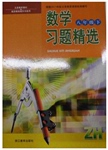题目内容
When you cough or sneeze(打喷嚏), please turn your head away from others and cover your mouth with the full part of your hand. Afterwards, you should say, “Excuse me.” This is a rule I set for my students. It is so simple, but many kids have never been told to do this. In fact, I noticed adults cough and sneeze in public without putting a hand over the mouth. I hate traveling by subway in New York during cold and flu season, because it is certain that someone is going to stand right behind me and cough or sneeze on my neck.
One important thing I point out to the kids is that after they sneeze or cough on their hand, they should wash their hands as soon as possible. Otherwise, they will be passing those germs(细菌) along to everything and everyone they touch. In order to help the kids remember this rule, I tell them about an old story. It says that when you sneeze, evil spirits jump into your body. If you don’t cover your mouth, the spirits will enter, but if you cover your mouth, you will keep them out. We say “God bless you” when someone sneezes, and in Germany you should say “Gesundheit.” That means “Good health to you.” Both expressions are said—just in case you didn’t cover your mouth in time and the spirits were able to enter your body. The kids love finding out the origins(起源) of these expressions and it encourages them to put advice to use more often.
小题1:The writer of this article must be _________.
小题2:What does the underlined word “this” mean?
小题3:After coughing or sneezing on their hand, students are advised to _________.
小题4:According to the article, the writer would like the kids _________.
One important thing I point out to the kids is that after they sneeze or cough on their hand, they should wash their hands as soon as possible. Otherwise, they will be passing those germs(细菌) along to everything and everyone they touch. In order to help the kids remember this rule, I tell them about an old story. It says that when you sneeze, evil spirits jump into your body. If you don’t cover your mouth, the spirits will enter, but if you cover your mouth, you will keep them out. We say “God bless you” when someone sneezes, and in Germany you should say “Gesundheit.” That means “Good health to you.” Both expressions are said—just in case you didn’t cover your mouth in time and the spirits were able to enter your body. The kids love finding out the origins(起源) of these expressions and it encourages them to put advice to use more often.
小题1:The writer of this article must be _________.
| A.a reporter | B.a teacher | C.a doctor | D.an officer |
| A.Don’t cough or sneeze in front of people. |
| B.Don’t stand beside someone who coughs or sneezes. |
| C.Many people cough or sneeze on the underground train. |
| D.Cover your mouth when coughing or sneezing and say sorry. |
| A.say “God bless you” immediately |
| B.wash their hands as soon as possible |
| C.go to see a doctor as soon as possible |
| D.go home and have a good rest |
| A.to be polite to adults | B.to be in better health |
| C.to have good manners | D.to do well in exams |
小题1:B
小题2:D
小题3:B
小题4:C
试题分析:短文大意:这篇短文中的作者是一位老师,主要给学生讲述了一个在别人面前打喷嚏,咳嗽时的礼貌问题以及相关的健康问。
小题1:推理判断题。根据第一段This is a rule I set for my students. 描述,可知本文作者是一个老师。故选B。
小题2:细节理解题。联系前文When you cough or sneeze(打喷嚏), please turn your head away from others and cover your mouth with the full part of your hand. Afterwards, you should say, “Excuse me.” 描述,可知此处指的是,前文提到的当你在 别人面前打喷嚏,咳嗽的时候,用手遮住嘴,事后道歉的内容。故选D。
小题3:细节理解题。根据第二段中One important thing I point out to the kids is that after they sneeze or cough on their hand, they should wash their hands as soon as possible. 描述,可知这位老师建议学生们尽快的洗手。故选B。
小题4:主旨大意题。阅读短文可知,本文中老师主要讲述了一个有关礼貌的问题,故选C,他希望学生们有良好的礼貌。

练习册系列答案
 习题精选系列答案
习题精选系列答案
相关题目